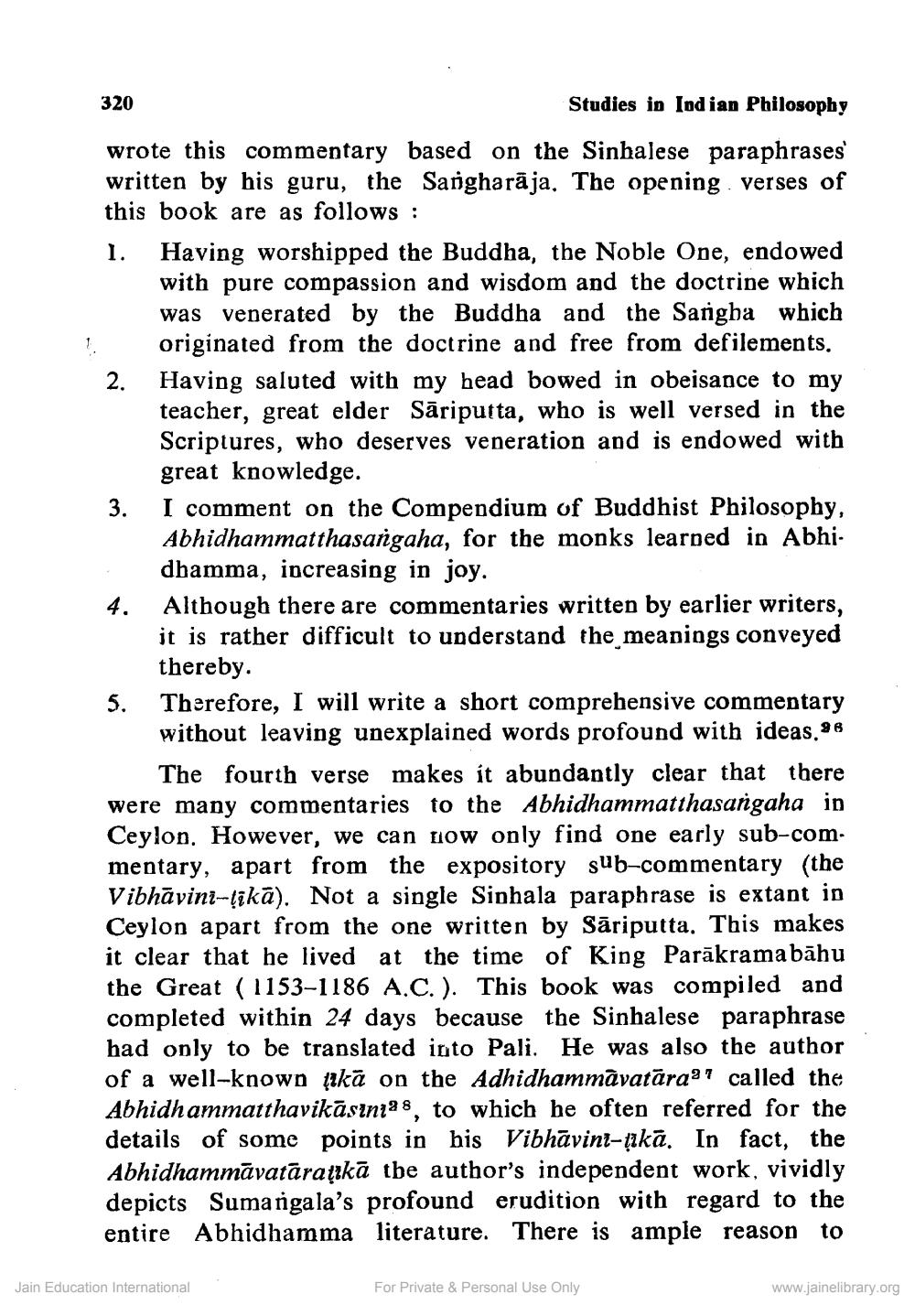________________
320
Studies in Indian Philosophy
2.
Har
wrote this commentary based on the Sinhalese paraphrases written by his guru, the Sarigharāja. The opening verses of this book are as follows: 1. Having worshipped the Buddha, the Noble One, endowed
with pure compassion and wisdom and the doctrine which was venerated by the Buddha and the Sarigha which originated from the doctrine and free from defilements. Having saluted with my head bowed in obeisance to my teacher, great elder Sāriputta, who is well versed in the Scriptures, who deserves veneration and is endowed with
great knowledge. 3. I comment on the Compendium of Buddhist Philosophy,
Abhidhammatthasangaha, for the monks learned in Abhi.
dhamma, increasing in joy. 4. Although there are commentaries written by earlier writers,
is rather difficult to understand the meanings conveyed
thereby 5. Therefore, I will write a short comprehensive commentary
without leaving unexplained words profound with ideas. 96
The fourth verse makes it abundantly clear that there were many commentaries to the Abhidhammatthasangaha in Ceylon. However, we can now only find one early sub-commentary, apart from the expository sub-commentary (the Vibhāvini-likā). Not a single Sinhala paraphrase is extant in Ceylon apart from the one written by Sāriputta. This makes it clear that he lived at the time of King Parākramabāhu the Great (1153-1186 A.C.). This book was compiled and completed within 24 days because the Sinhalese paraphrase had only to be translated into Pali. He was also the author of a well-known jikā on the Adhidhammavatāraar called the Abhidh ammatthavikāsınja 8, to which he often referred for the details of some points in his Vibhāvint-ţikā. In fact, the Abhidhammāvatāraţikā the author's independent work, vividly depicts Sumargala's profound erudition with regard to the entire Abhidhamma literature. There is ample reason to
Jain Education International
For Private & Personal Use Only
www.jainelibrary.org




